A Guide to Commercial Landlord Insurance: What to Know in Florida
See How We're Different
or call us: 954-233-0733
Commercial landlord insurance is a type of insurance policy that provides coverage for landlords of commercial properties, such as office buildings, retail spaces, and warehouses. It typically includes coverage for property damage, loss of rental income, and liability for injuries or damages that occur on the property. It is designed to protect the landlord's investment and help cover the costs of repairs or rebuilding in the event of a loss.
As with any business venture, there are some risks that need to be prepared for. One way to prepare for these potential risks is by buying commercial landlord insurance.
What Is Commercial Landlord Insurance and Why Do You Need It in Florida Specifically
Commercial landlord insurance is a type of policy that helps protect the financial assets of landlords from liabilities that could arise when renting out to tenants.
In Florida, especially, commercial landlord insurance can cover losses from hazardous weather such as hurricanes and tornadoes. It can provide property coverage for the physical structure against loss or damages due to fire, theft, vandalism, or other similar events.
What Does Commercial Landlord Insurance Cover in Florida?
Generally speaking, commercial landlord insurance covers a wide range of perils associated with owning and managing a rental unit in Florida. It includes:
- Broken pipes and appliance leaks
- Earthquakes
- Fire
- Floods
- Hurricanes
- Injuries at the property
- Lightning
- Malicious damage by third-party
- Oil leaks
- Storms and hail
- Theft and robbery
- Water leaks
In addition, there are several coverages that are provided as optional add-ons, which include the following:
- Accommodation cost coverage when tenants need to be relocated
- Legal liability issues
- Malicious damage by tenant
- Property contents insurance
- Rent guarantee to cover lost rent
- Riot and civil commotion coverage
- Terrorism as well as other issues that are included in standard insurance coverage
Exclusions from Commercial Landlord Insurance in Florida
It is crucial to understand that the coverage provided by commercial landlord insurance may not be comprehensive, and there could be certain exclusions depending on the policy. These would include:
- Rental belongings: Usually, commercial landlord insurance does not cover the personal belongings of a tenant, which may include furniture, electronics, and clothing.
- Equipment and appliance maintenance: Commercial landlord insurance policies typically do not cover regular maintenance of machinery and appliances, such as HVAC systems or plumbing repairs.
- Intentional damage: If a property is damaged due to intentional acts by the tenant, it generally will not be covered by commercial landlord insurance.
- Owner-occupied properties: Some carriers do not offer coverage for property that the landlord occupies, so make sure to check with your insurance company.
How Much Does Commercial Landlord Insurance Cost?
The cost of commercial landlord insurance will vary depending on the type and amount of coverage needed as well as the location and condition of the rental unit. Some factors that can influence the cost of your policy include:
- Size of the commercial rental property: The bigger the size of the property, the higher the premium.
- Location: Certain areas may be considered riskier and thus can result in a higher premium.
- Age of building: Older buildings tend to have higher premiums as they are deemed more prone to damages or accidents.
- Deductible amount: The higher the deductible, the lower the premium.
- Coverage amount: The more coverage you need, the higher your premiums will be.
- Claims history: The better your claims history, the lower your premiums will be, as insurance companies reward policyholders who do not often make claims.
Ultimately, the best way to get an accurate estimate for commercial landlord insurance in Florida is to speak with a knowledgeable insurance agent who can help you assess your needs and find a policy that fits your budget.
On average, the cost of commercial landlord insurance in Florida is around $1722 per year, which is significantly higher than the national average.
What Insurance Do Commercial Landlords Need in Florida?
The goal of any commercial landlord in Florida should be to ensure their property is fully protected from any and all risks they may face. That’s why they need to carry the right insurance policies to provide the necessary coverage.
Depending on the type of property, the amount of risk involved, and other factors, commercial landlords in Florida should consider carrying some or all of these types of policies:
a) Commercial Property Insurance: Commercial property insurance protects landlords from any physical damages to their property due to fires, floods, storms, theft, or vandalism. It also covers any legal liability associated with the rented property, such as slip and fall accidents or injuries sustained by tenants.
Depending on the policy, it may also provide coverage for additional living expenses in an emergency that forces tenants to vacate the property temporarily. With a commercial property insurance policy, landlords can be assured that their investments are protected from any unexpected damages or losses.
b) General Liability Insurance: General liability insurance protects commercial landlords in case of bodily injury, property damage, or personal and advertising injury caused by tenants or employees. It also covers any claims associated with negligence or landlord performance errors. This policy is particularly beneficial for landlords who manage multiple properties as it can provide extra protection against litigation costs.
c) Income Insurance: Income insurance helps landlords protect their income from unexpected events that may prevent them from collecting rent. It covers loss of rental income due to fire damage, tenant default, or other circumstances that can cause tenants to miss payments.
This policy is essential for rental property owners who rely heavily on rental income as it will provide the necessary financial support if the rental property becomes uninhabitable or ceases to generate income.
d) Flood and Earthquake Insurance: Given Florida's high prevalence of floods and earthquakes, commercial landlords should consider getting flood and earthquake insurance to cover any damages caused by these natural disasters.
This policy will provide coverage for losses related to structural damage, repair costs, or replacement of personal items due to flooding or earthquakes.
e) Wind Deductible Buy-Down Insurance: This policy helps landlords lower their annual wind deductible in the event of a hurricane or other windstorm. This type of insurance allows landlords to protect their property from catastrophic damage by giving them access to extended coverage should they ever need it.
f) Commercial Umbrella Insurance:
Commercial umbrella insurance
provides an additional layer of protection in case the other policies do not provide enough coverage for a certain claim or incident. It is crucial for landlords exposed to higher risks and need extra protection from personal or legal liabilities.
How to Get a Quote for Commercial Landlord Insurance in Florida?
In order to get a quote for your commercial landlord insurance, be sure to follow the following steps:
- Review your property and the associated risks: Before you start looking for a policy, make sure that you have a good understanding of the type of property you own, any potential hazards or risks associated with it, and any other factors that may affect your insurance needs.
- Shop around for quotes from different insurers: Once you have identified your risks and coverage needs, you can shop around for quotes from different insurance companies in Florida. Be sure to compare the features and benefits of each policy to find the one that best meets your needs.
- Get advice from an experienced independent agent: It is always a good idea to consult with an independent insurance agent who can offer you advice on the best policy options. They will be able to provide you with recommendations and help you compare various policies so that you can make an informed decision.
- Read the fine print carefully: When signing up for a commercial landlord insurance policy, read the terms and conditions carefully before committing to any agreement. This will help ensure you get the best coverage for your needs.
- Review and update your policy annually: Once you have a policy in place, it is important to review and update it regularly to ensure that you are still adequately covered against any risks or liabilities associated with owning rental property in Florida.
By following these steps, you can get a quote for commercial landlord insurance in Florida that meets your needs and provides the coverage necessary to protect your commercial rental property.
How to File a Claim for Commercial Landlord Insurance in Florida?
In the event that you need to file a claim for your commercial landlord insurance in Florida, here are the steps you should take:
- Contact your insurer: If you have suffered a loss or damage and need to make a claim, contact your insurance provider as soon as possible. Provide them with all relevant information about the incident, and they will be able to guide you through the process.
- Gather evidence: Your insurer will require certain evidence in order to assess your claims, such as photos or videos of the damage, reports from any relevant professionals (such as a contractor or an engineer), and other supporting documents.
- Submit your claim: Provide your insurer with all the necessary evidence and documents, then submit your claim. They will review the information, and you should be notified of their decision within a reasonable time.
- Keep track of any payments: If your claim is accepted, keep track of any payments made by the insurer so that you can be sure that you are receiving the full coverage amount.
- Seek legal advice if necessary: If your claim is denied or you have any other disputes with your insurer, it may be advisable to seek legal advice in order to ensure that your rights are fully protected and that you receive the compensation you deserve.
By following these steps, you can successfully file a claim for commercial landlord insurance in Florida and receive the compensation necessary to resolve any losses or damages.
Having Questions? Contact Us Now for a Florida Commercial Insurance Quote
At Bellken Insurance Agency, we understand the importance of having a reliable commercial landlord insurance policy in Florida. Our experienced team is here to help you navigate your options and find the best coverage for your needs.
Contact us today for a free Florida commercial insurance quote.








